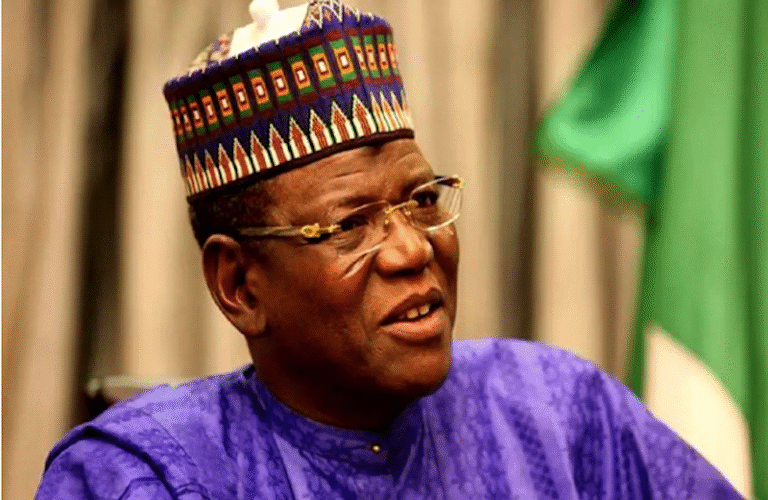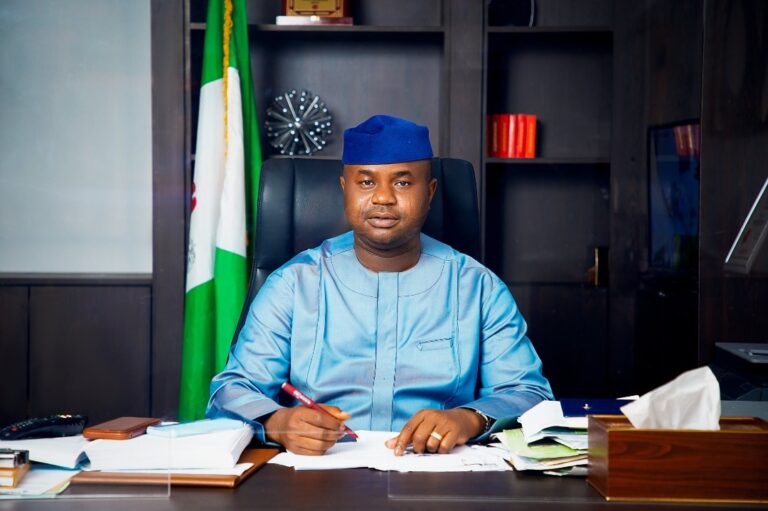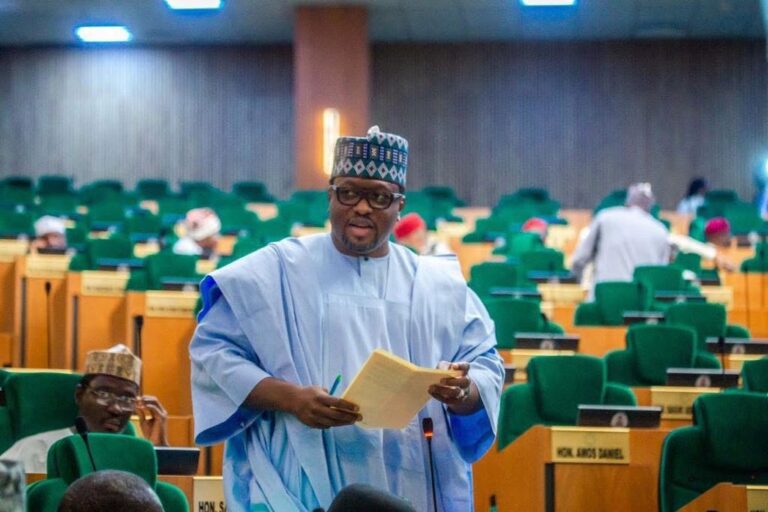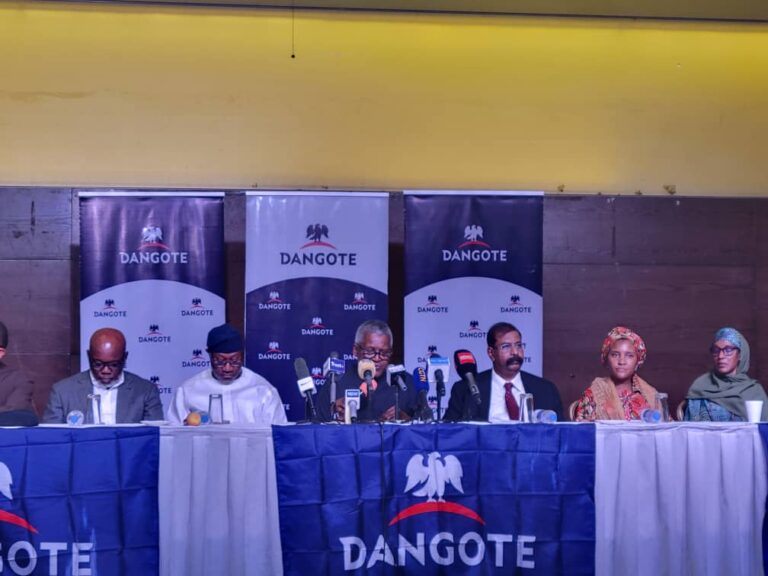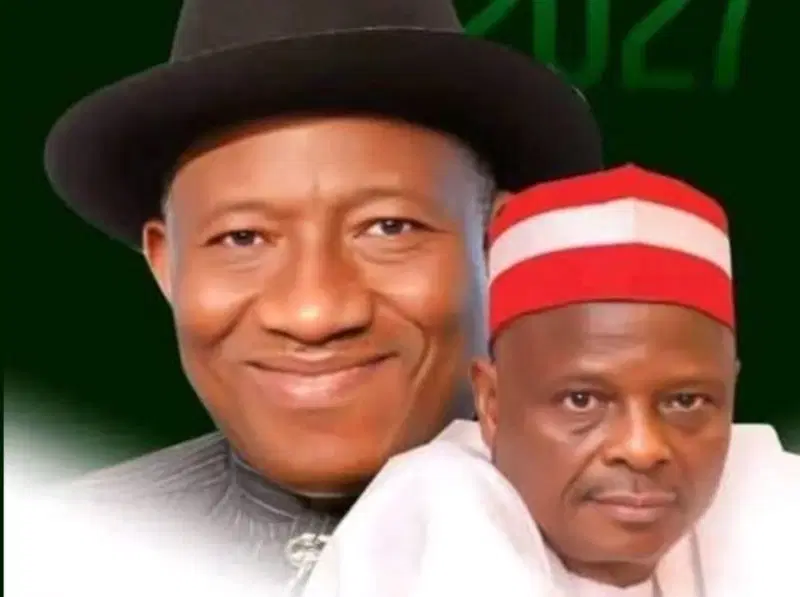
ABUJA — Confusion over micro-zoning of key offices in the Peoples Democratic Party, PDP, has unsettled members and heightened internal tensions as the party struggles to agree on how to share leadership positions, ahead of its November national convention and the 2027 general polls.
Indeed, the party is facing internal tensions after stakeholders in Lagos and Osun states rejected its zoning formula and declared support for business leader, Dr Gbenga Olawepo-Hashim, as their preferred presidential candidate.
Meanwhile, prospects of coalition-backed African Democratic Congress, ADC, in the build-up to the 2027 general elections brightened yesterday, with the Independent National Electoral Commission, INEC’s, official recognition of former Senate President, Senator David Mark, as national chairman of the party.
The recognition, after a period of intense dispute and procedural delays that had left the party divided, has ended weeks of uncertainty over ADC’s leadership and positioned it for greater participation in opposition coalition talks ahead of the 2027 polls.
Vanguard confirmed the development yesterday, after accessing INEC’s official website, where David Mark’s name and those of other key officials were listed as duly recognised leaders of the ADC.
The recognition came as the camps of former President Goodluck Jonathan and the 2023 presidential candidate of the New Nigeria Peoples Party, NNPP, Dr. Musa Kwankwaso, deepened collaboration talks that may lead to collapsing their structures and working together for the purpose of returning to the Aso Rock Villa.
It was learned last night that both political camps have been holding regular consultations, with a view to fine-tuning strategies and arriving at a common position, ahead of the next election.
Micro-zoning tension in PDP
In the PDP, lack of clarity on micro-zoning, the process of allocating top positions among specific geo-political zones or states, has left party leaders and aspirants unsure of their chances, fueling intense lobbying and behind-the-scenes manoeuvring by competing factions.
Multiple sources confirmed to Vanguard that consultations were ongoing at both state and zonal levels, with several influential figures travelling across the country to drum up support for preferred aspirants.
“Consultations are ongoing. We’ll know more when a definite decision is taken on micro-zoning during the party’s 103rd NEC meeting on October 15. By then, we should have a clear direction,” PDP Deputy National Youth Leader, Timothy Osadolor, explained.
Battle for national chairmanship
At the heart of the tussle is the position of national chairman, widely regarded as the most strategic office in PDP’s structure.
The position is expected to play a pivotal role in shaping the party’s presidential campaign machinery and determining how candidates will emerge for the 2027 elections.
Several names have already surfaced in discussions, including former Kano State governor, Mallam Ibrahim Shekarau; former Benue State governor, Samuel Ortom, and Gbenga Olawepo-Hashim from Kwara State. Each is backed by different blocs seeking to influence the party’s future direction.
A chieftain of the party, aligned with the influential G-5 group of ex-governors, confirmed to Vanguard that no final decision had been reached on micro-zoning.
Asked if a firm decision had been made, he said: “No. Positions have not been micro-zoned yet. On a personal note, my leader (Ortom) has also decided to throw his hat in the ring for national chairmanship position, so I have stood down my bid for the same position.”
A senior party member, who has been active in the ongoing consultations, revealed that he had been travelling across different states to build alliances, ahead of any eventual micro-zoning announcement.
“I’ve already started. I’ve been to about eight states so far. It’s not just my ambition, it’s also part of the national chairmanship campaign.
“I’m just building bridges, doing what needs to be done. Personally, I have no vested interest in who becomes the presidential candidate of our party in 2027, none whatsoever,” he added.
Another insider explained how the absence of a clear micro-zoning formula has intensified competition and created deep uncertainty around the chairmanship race.
“The real issue now is the position of national chairman. Who should it go to? I’ve heard that Mallam Ibrahim Shekarau is being considered. There’s also Gbenga Hashim from Kwara. Some camps, however, are pushing strongly for Samuel Ortom to emerge as chairman.”
The ongoing stalemate has sparked unease among PDP members, with some warning that prolonged indecision could lead to defections or weaken the party’s preparations for 2027.
Party elders recall similar disputes in the past, particularly before the 2015 elections, when disagreements over zoning triggered a wave of defections that ultimately weakened PDP’s national standing.
Meanwhile, some stakeholders are keeping their strategies tightly guarded while watching for signs of shifting alliances.
“For now, let’s just wait and see. Fingers are crossed,” another source told Vanguard.
Lagos, Osun PDP leaders reject zoning, back Gbenga Hashim
Some party members are concerned that rejection of the zoning template could reshape PDP’s internal politics, ahead of the 2027 polls.
In Osogbo, party members gathered under the leadership of Alhaji Abass Olaniyi, South West Coordinator of the Gbenga Hashim Solidarity Movement.
“The era of division is over in Nigeria. What the country needs now is competence, capacity, and a unifier,” Olaniyi said.
In Lagos, another rally of local government and senatorial officials, coordinated by Ola Azeez, also rejected zoning.
“The era of division is over in Nigeria. This is a new era of competence and capability, and a symbol of that new vision,” Azeez said.
The two rallies reflect wider resistance to the party leadership. Last week, PDP stakeholders in Oyo and Ondo states also opposed zoning, warning it could spark internal realignments.
In the Federal Capital Territory, the PDP chapter has already adopted Hashim as its candidate, while stakeholders in Plateau and Kano have staged protests and voiced opposition to zoning.
Implications of Mark’s recognition
The recognition of Senator Mark’s leadership is expected to strengthen ongoing negotiations among opposition leaders, including former Vice President Atiku Abubakar, Labour Party’s Peter Obi, and other influential politicians working to form a united front to challenge the ruling All Progressives Congress, APC, in 2027.
Mark was appointed interim chairman in June after the exit of founding chairman, Chief Ralph Okey Nwosu. His emergence was part of a wider realignment within the ADC aimed at re-positioning the party to play a leading role in national politics.
The confirmation by INEC settles a prolonged leadership tussle.
Previously, the commission withheld recognition due to incomplete documentation, such as missing specimen signatures of new officers and unsigned records of the National Executive Committee, NEC, meeting that ratified the leadership changes.
An INEC source had explained the commission’s position thus: “INEC has no problem with ADC at all. Once the party complies fully with the requirements, INEC will issue an official statement.’’
The source further highlighted one of the key lapses in the party’s initial submission, saying “the letter only listed 44 names of new national officers without their signatures. It is proper that we have in our custody specimens of their signatures. That’s when we would act on their letter.”
ADC National Publicity Secretary, Mallam Bolaji Abdullahi, had dismissed claims that INEC rejected David Mark’s leadership, insisting the delay was purely procedural.
“There was never a time INEC rejected our leadership. What is happening is just administrative. The delay is just procedural and I can tell you it will be resolved this week,” he had said, adding that all required documents had since been submitted.
“We have had clarity now, and we made the required submission to INEC last Thursday,” he stated.
Leadership transition challenges
The leadership transition faced strong resistance from some party figures, including the presidential candidate, Dumebi Kachikwu, who condemned the change as illegal and divisive, and warned that it undermined the party’s democratic values.
Similarly, Nafiu Bala, a former governorship candidate in Gombe State, declared himself interim chairman and accused the new leadership of attempting to hijack the party’s structures.
The dispute eventually moved to the courts, with three aggrieved members filing a suit at the Federal High Court in Abuja seeking to nullify Mark’s appointment on procedural grounds.
With INEC’s confirmation now granted, David Mark and his team , including former Interior Minister Rauf Aregbesola, as National Secretary and Dr. Ibrahim Mani Ahmad as National Treasurer, now have the mandate to stabilise the party and prepare for coming political battles.
Other key figures in the ADC’s leadership include former Minister of Youth Development, Bolaji Abdullahi, National Publicity Secretary; former Edo State governor, Prof. Oserheimen Osunbor, National Legal Adviser; and Akibu Dalhatu, National Financial Secretary.
Jonathan, Kwankwaso deepen negotiations
In particular, the Jonathan camp is interested in wooing Kwankwaso to move his massive structure that enabled him win Kano State, one of the most important political constituencies in the country, to any of the parties that former President Jonathan may eventually pitch his tent for the 2027 election.
A competent source close to Jonathan’s camp confirmed to Vanguard that already, Kwankwaso’s camp has met with Jonathan’s team and that both sides have tabled their minimal demands, with a view to reaching an agreement.
The source hinted that Kwankwaso’s camp was demanding, among others, the vice presidential slot, adding that while Jonathan and his camp might not be opposed to the idea of working with Kwankwaso, the team was yet to take a final position on the matter.
The top official said Jonathan’s camp might be exploring other options, one of which is to pick a younger northern politician, possibly, a sitting governor from one of the northern states, to be able to draw the support of the youth population from the region.
Jonathan’s bigger problem
However, the bigger problem for Jonathan at the moment, Vanguard gathered, stems from the uncertainty over which political party he will use to actualise his 2027 political ambition.
It was learned that though the PDP and ADC are open to giving him their platforms to challenge incumbent President Bola Tinubu of the APC, the factions battling for control of the souls of the two parties may pose some legal problems along the way.
While some camps are keen on giving Jonathan the platform to run in PDP, others, particularly those loyal to the former Rivers State governor, Nyesom Wike, will not support such a move since they currently support the APC government and want it to continue until 2031.
Sources close to Jonathan’s camp claimed it was the inability of the former president to decide on which of the major opposition political parties platform to run that was effectively delaying his official declaration for the presidency, many weeks after the information on his planned return to Aso Rock Villa filtered into the public space.
According to competent officials in the camp of the former president, the confusion is exacerbated by the fact that some leaders of the PDP, of which Jonathan is a founding member and the recently morphed ADC want him to use their platforms to actualise his 2027 political ambition.
The major challenge facing Jonathan right now is that both parties are embroiled in a series of legal issues over the control of the platforms, and the probability of the factions led by the two contenders taking control before the election remains high given the volatility of the country’s legal system.
However, the recognition of the David Mark’s leadership of the ADC has put paid to such fears, as far the party is concerned.
Jonathan optimistic, confused
Nevertheless, a close source within Jonathan’s camp said: “ Jonathan is both optimistic and confused about his chances in the PDP and the ADC due to the fact that some of his competitors still have some remote control on both parties, thereby making it slightly dicey for him to settle for any of them as the platform to run on in 2027.
“It is a fact that at the moment, the ADC is made up of mostly Goodluck Jonathan’s ‘boys’ who are ready to offer him the platform to run but the point is that Atiku is also angling for the same platform, even though he does not seem to have a foothold on the party like Jonathan.
“But it is getting clearer and clearer by the day that the former president would likely pitch his tent with the PDP, given the fact he has very strong sentiments for the party and most of those who left the party did so to protest Wike’s takeover of its structures,” the source said.
VANGUARD.

